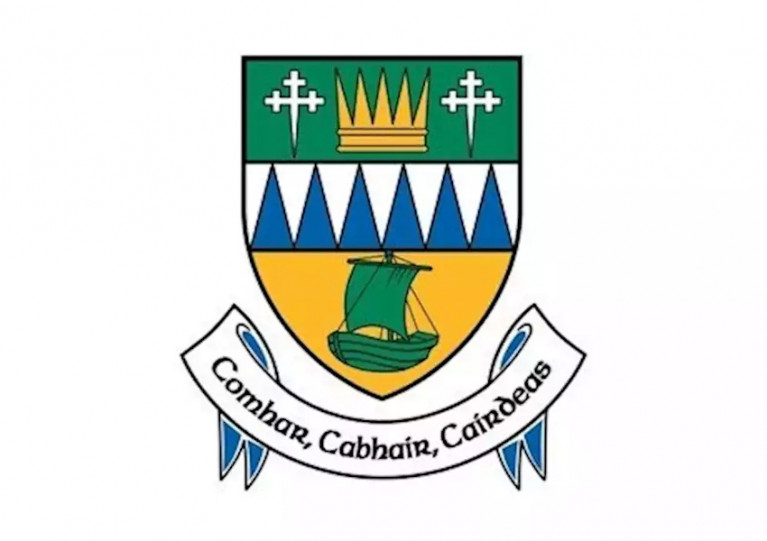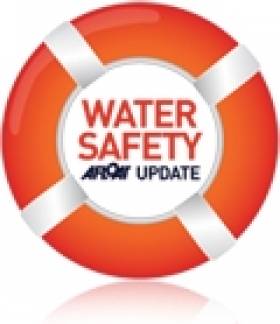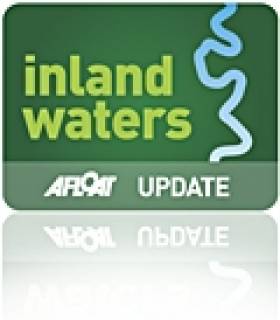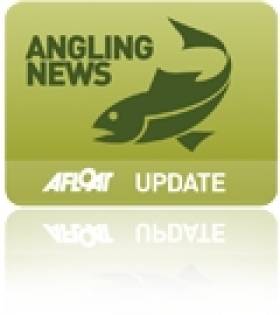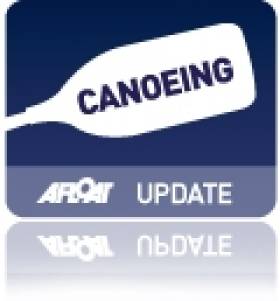Displaying items by tag: River Blackwater
River Blackwater Inspires New Series for TG4
The river Blackwater which rises in Kerry and flows into the Celtic Sea in Co Cork’s Youghal, has inspired a new four-part TV series on TG4.
Presenter Diarmuid Ó Drisceoil follows in the footsteps of Annraoi Ó Liatháin using his book Cois Móire as a travel guide, for the series of the same name.
The series, which is produced and directed by Darina Clancy of Cormorant Films, starts with the river’s source, described as “near the breast of the Goddess Danú in Kerry.
It follows the river into Mallow, Fermoy, onto Lismore, Cappoquin and finally to the sea at Youghal.
The series combines the river’s natural environment with its “vast history and personality”, exploring its route by ruins of historic buildings and energetic modern communities.
 Cois Móire presenter Diarmuid O Drisceoil
Cois Móire presenter Diarmuid O Drisceoil
“ Largely inaccessible by land due to forestry and private ownership, it has preserved its natural beauty and remains a witness and a timeless haven from a world beyond its banks that is ever changing,” the series producers state.
The series is sponsored by Cork County Council, and Mayor of Co Cork Cllr Danny Collins said he was “sure viewers will be captivated by the distinctive character of the region, with everything from the military history of Fermoy to the enchanting music of the Sliabh Luachra music trail, the majestic Drishane Castle in Millstreet and the famed Raleigh Quarter in Youghal”.
Cois Móire was supported by the Broadcasting Authority of Ireland through its Sound and Vision scheme and by Creative Ireland, Waterford.
Cois Móire, the first of four episodes, airs on Wednesday, November 9th, at 9.30 pm and anytime after that on the TG4 Player.
Fears That Pandemic Has Dealt Fatal Blow to Fermoy Angling Festival
Fears are growing that Fermoy’s celebrated coarse angling festival may not take place again as the pandemic has hit key businesses in the East Cork town.
As the Irish Examiner reports, the Fermoy Coarse Angling Association called off two events on the River Blackwater last year due to COVID-related restrictions, as well as a third event this past May.
It’s now cancelled what would have been its calendar highlight next month, owing to a lack of tackle shops and suitable accommodation in the area, according to the club chairman.
Fermoy’s last remaining hotel closed recently, and there has been a reduction in the number of B&Bs to accommodate anglers from all over Ireland and the UK.
The growth of online shopping has also been blamed for the closure of the town’s tackle shops — with the nearest in Coachford more than 60km away.
The Irish Examiner has more on the story HERE.
Cars Dumped on River Blackwater May Have Been Placed There to Prevent Erosion, Council Speculates
A number of old cars found dumped on the River Blackwater in Co Waterford may have been placed there to help prevent erosion of the river bank, it’s been suggested.
As the Irish Examiner reports, Waterford City & County Council confirmed that the use of end-of-life vehicles to control erosion of river embankments “was relatively common” in decades past.
It follows an anonymous tip to Fermoy newspaper The Avondhu that multiple cars spotted on the river an Irish Examiner journalist on a kayaking trip last month were in an area where such vehicles were routinely dumped “to hold the bank together”.
The practice locally was said to have dated back as far as the 1960s. Such dumping was outlawed by the Waste Management Act 1996.
The Irish Examiner has more on the story HERE.
The discovery of a number of cars illegally dumped in the River Blackwater has prompted Waterford City & County Council investigation, as the Irish Examiner reports.
As many as 10 vehicles were found last week in a wooded area of the waterway near Dromana Bridge, south of Cappoquin, by an Irish Examiner journalist on a kayaking trip.
“They looked like they have been there for years,” Dan MacCarthy said. “Some had fallen apart with their engines lodged in the mud, others had bits of metal and plastic strewn around.”
The Irish Examiner has much more on the story HERE.
Kerry County Council has launched an investigation after the remains of a number of dead lambs were found dumped in the River Blackwater, as RTÉ News reports.
Around eight lamb carcasses were found in the river close to the R568 between Moll’s Gap and Sneem, in a watercourse that’s home to the rare and endangered freshwater pearl mussel.
“The lambs are not tagged so we would appeal to anyone who knows anything about this matter to contact us,” county vet Paddy Fenton said.
Investigation underway in to the dumping of dead lambs in a Kerry river. The River Blackwater is home to the endangered freshwater Pearl mussel.
— Seán Mac an tSíthigh (@Buailtin) March 9, 2021
No tags on the lambs, Kerry County Council is appealing to the public for information. pic.twitter.com/uQRXgTRUd0
RTÉ News has more on the story HERE.
#Drowning - Three drownings over the weekend have underlined the importance of safety on the water during the current sunny spell.
In Galway, residents of Moycullen were mourning the loss of a Lithuanian man who drowned while swimming with friends in Ballyquirke Lake on Saturday evening 8 June, according to Galway Bay FM.
And RTÉ News reports of a similar incident in Cork in the early hours of this morning 10 June, in which a 21-year-old man drowned after getting into difficulties in the River Lee near Ballincollig.
The young man is also believed to have been swimming with friends after another hot day across the country, according to The Irish Times.
Elsewhere in Cork, RTÉ News says a 17-year-old has died after drowning in the River Blackwater.
Earlier it was reported that the teen was in a serious condition after getting into difficulties while swimming with friends at a bathing spit known locally as Lisheen Bridge, and had been in the water for some time before he was recovered.
#News - The body of a Meath teenager who went missing in the early hours of Easter Monday has been found in the River Blackwater, as the Irish Independent reports.
Ricky McDermott, 17, disappeared after a night out in Virginia, Co Cavan on Sunday night.
Following a search launched on Monday morning, The Irish Times reports that a body was recovered from the River Blackwater in Virginia around 5pm yesterday (2 April) by the Boyne Fishermen’s Rescue and Recovery service.
In other news, the man pulled from the water near Portstewart Harbour yesterday has died.
BBC News reports has named the deceased as Stanley Duncan, who was chief executive of the Driver and Vehicle Agency in Northern Ireland.
It's understood that the 57-year-old has been fishing at rocks near the harbour when he fell into the sea by Victoria Terrace.
Environment Award for NI Angling Club
#INLAND WATERWAYS - The Tyrone Times reports that Clogher and District Angling Club has been awarded £1,000 (€1,196) by the Northern Ireland Environment Agency (NIEA) for an environmental project with local schools.
The Water Environment Community Awards recognised the club for its work with St McCartan's Primary School in Clogher and Augher Central Primary School to "investigate the signs and impact of pollution in the River Blackwater" over the coming months.
“Clogher and District Angling Club have demonstrated their commitment to protecting and improving their local water environment," said the NIEA's Dave Foster.
"I hope that their efforts over the next few months will inspire others to do their bit too and I would urge people to follow these projects and share what they see.”
Tributes Paid in Fermoy to Champion of Angling Jack O'Sullivan
#ANGLING - The Corkman has paid tribute to the late Jack O'Sullivan, one of the best known Irishmen in the coarse angling fraternity.
"He is a man who worked hard to put the town of Fermoy, and the stretches of the River Blackwater that enhance it, to the forefront of tourism," the paper writes.
"For 25 years he led from the front, not just by putting Fermoy on the map as a coarse angling destination but also his country, when he brought the likes of the World Coarse Angling Championships to Fermoy in 1968, and many other prestigious events down through the years."
A founder member of the National Coarse Fishing Federation of Ireland (NCFFI), in 2007 O'Sullivan received a gold medal from the organisation for his services to the Fermoy Coarse Angling Association, and angling tourism both local and national.
The Corkman has more on the story HERE.
NI Highlights New Canoe Routes Ahead of National Trails Day
The Northern Ireland Tourist Board is highlighting the latest additions to its network of canoeing trails ahead of National Trails Day on Sunday 2 October.
“We are very fortunate in Northern Ireland to have so many perfect calm lakes and meandering rivers to explore and canoeing provides a great day out or weekend away for the family," the board's Nigel Tilson told the Community Telegraph.
As previously reported on Afloat.ie, the new coastal Foyle Canoe Trail and South East Canoe Trail join Northern Ireland's five inland canoe trails at Lough Neagh, the River Blackwater, Lough Erne, the Lower Bann and Strangford Lough.
These will be joined later this year by two more sea trails on the north and east coasts.
National Trails Day will feature six two-hour canoeing sessions with free equipment and lessons. For details visit www.nationaltrailsday.co.uk.



























